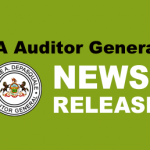Pennsylvania is still operating without a budget as the new school year approaches.
House Bill 611 is now in the state Senate. It would provide more education funding and target more money to lower-income districts.
But Senate Republicans are holding out to establish a school voucher program, which would send $100 million of state funding to private schools. Gov. Josh Shapiro has made it clear he will veto the provision if it will end the stalemate.
Maura McInerney, legal director at the Education Law Center, contended private school voucher programs redirect public money away from underfunded public schools.
“Diverting public funds to private school vouchers will undermine the court’s ruling in our case that concluded that public schools are underfunded, and that we need significant resources in order to address entrenched inequities and state underfunding of our schools,” McInerney asserted.
Gov. Shapiro’s proposed budget includes an increase of just over $567 million for education, and almost $104 million for special education. Opponents claimed the larger House proposal would eventually increase taxes and deplete the rainy-day fund and other reserves in less than five years.
McInerney is convinced private school voucher programs undermine the fundamental promise of a high-quality, equitable education for Pennsylvania students.
“A private school voucher program authorizes public dollars to support private schools that can and do discriminate,” McInerney pointed out. “They discriminate against students with disabilities, they can deny them admission. They discriminate on the basis of religion, ethnicity, gender, gender identity and sexual orientation.”
She added the state still needs to determine how to develop a system which complies with the state Constitution and provides adequate state funding to underfunded public schools so they are not overly reliant on local property taxes.




